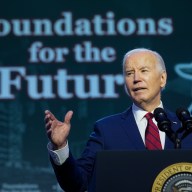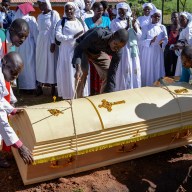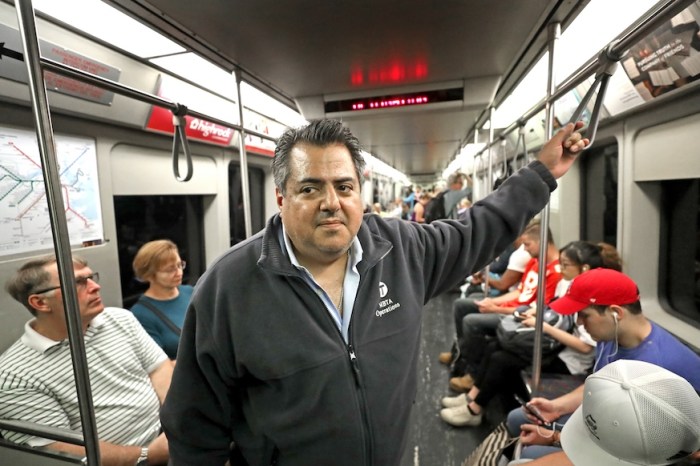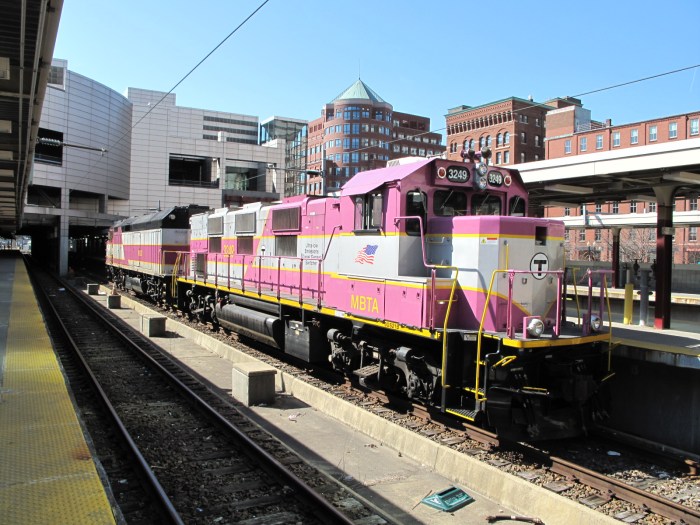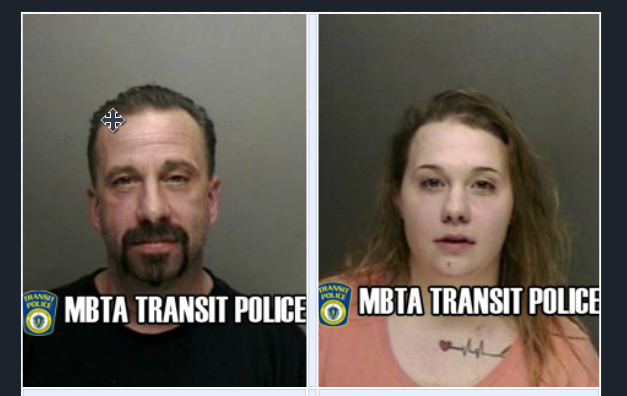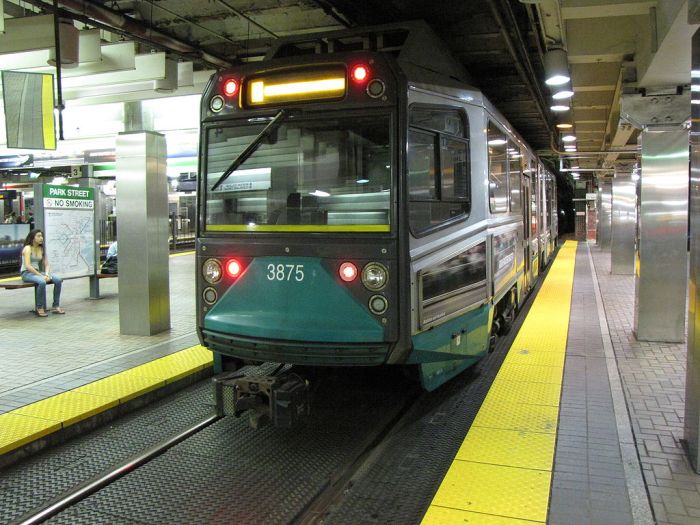The MBTA killed its late-night services last February after reports of low ridership and high cost, but now a Boston-based private transit company has offered to help residents across the city get around at night through a partnership with the T. The transit authority’s fiscal and management control board heard an unsolicited proposal from Bridj on Monday outlining a partnership in which the private company would provide 10 vehicles for five hours a night, 365 nights of the year. “Everyone in this room agrees late night service is vitally important to this community in general as well as people in the businesses that make it up,” said Mary Rose Fissinger, a systems operations associate at Bridj who spoke at the meeting. “Efficient and affordable transportation in the late night hours means that the stress of getting to or home from work decreases dramatically for thousands of people [as well as] people getting to or from the airport or a hospital.” RELATED:MBTA kills late-night service The T would pay Bridj $85 an hour—an estimated $1.55 million annually. Some of this will be recouped in fares, which the MBTA could set at or higher than current bus fares.
The proposal by Bridj is 35 percent less than the $132 an hour per vehicle cost of an MBTA bus but slightly higher than the $83 an hour per vehicle of the T’s current contracted buses in Winthrop. The MBTA shut down its late-night service that extended service until 2 a.m. on Friday and Saturday nights last February and Bridj made public its plan to fill that gap recently after. Bridj works by asking users to submit their current location and their destination and then providing a list of travel options. A Bridj bus typically holds eight to 10 other passengers at a time, and riders reserve a seat on the bus that matches their route best, then walk to the nearby pickup location.
RELATED:Boston’s Bridj eyeing place in public transit’s future Board members raised the issue that there is still a lot unknown about the need for late-night service—a knowledge gap the MBTA in working with Transit Matters, a nonprofit organization focused on the transit in and around Boston, is hoping to close with a survey expected to go out to the community this week. Stephanie Pollack, secretary and CEO of the MBTA, said that along with this proposal from Bridj, there is another from Transit Matters thatassumes people travel at “fixed” times and that the MBTA could meet their needs by providing buses at 75 minute intervals. Bridj is proposing vehicles that don’t hold as many passengers but travel more often. (The MBTA isopen to more unsolicited proposals) “If it’s really true that all restaurant workers get out at the same time like all hospital workers, then one model works,” Pollack said. “If it’s actually true that there isn’t a magic time and over the course of overnight hours, there are smaller groups of people that need to travel at different times, then the Bridj proposal would meet that need better.” RELATED:MBTA’s termination of late-night service draws federal complaint The upcomingsurvey aims to understand how Boston residents currently get around at night and what would help them do so more efficiently, like by asking if these commuters own a smartphone. Transit Matters expects to inform the board on survey results by mid-December. In the meantime, the Bridj proposal will be waiting for board members to be better informed by that data. Though Joe Aiello, chair of the control board, said that they could ask Bridj for a more detailed proposal, he hates to send them on a “wild goose chase” toward a direction the MBTA may not want to go. “Almost no systems run the same service during the day as at night,” Pollack said. “Everyone acknowledges that travel patterns are different in overnight hours, so… We should understand better before we launch a different iteration of overnight service.”
Bridj proposes to provide late-night service through partnership with MBTA
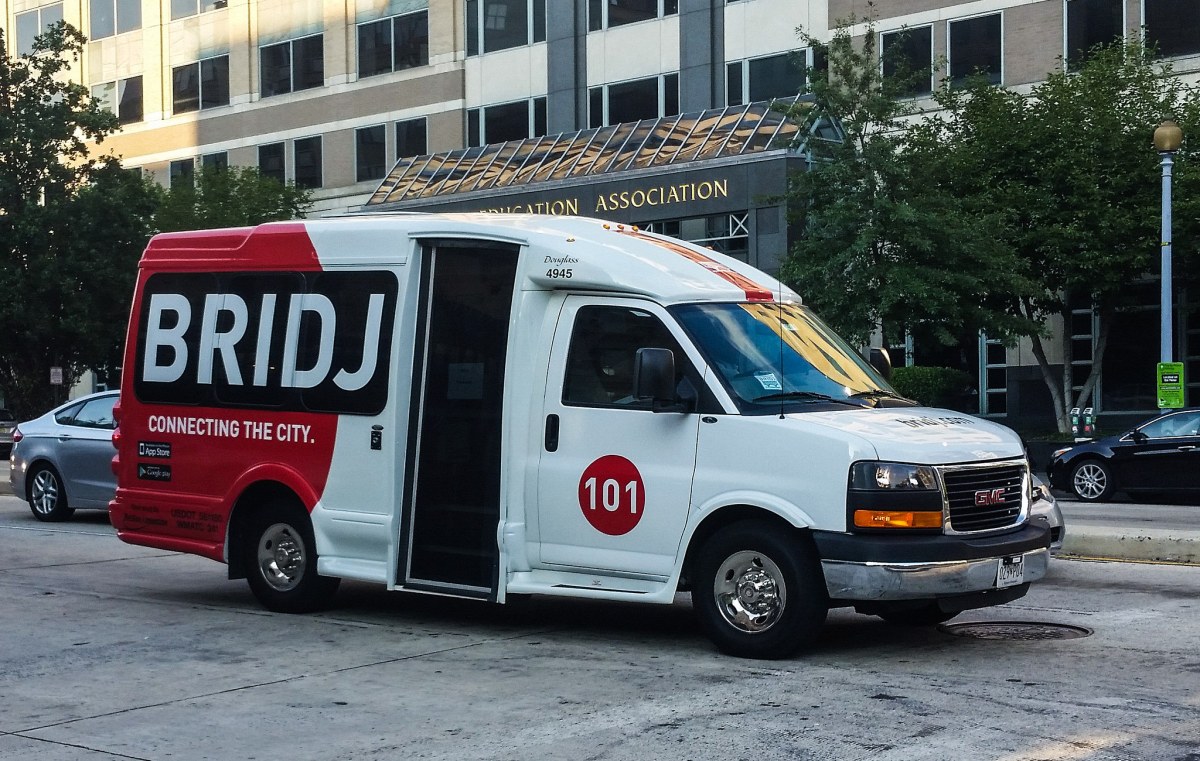
Flickr Creative Commons








